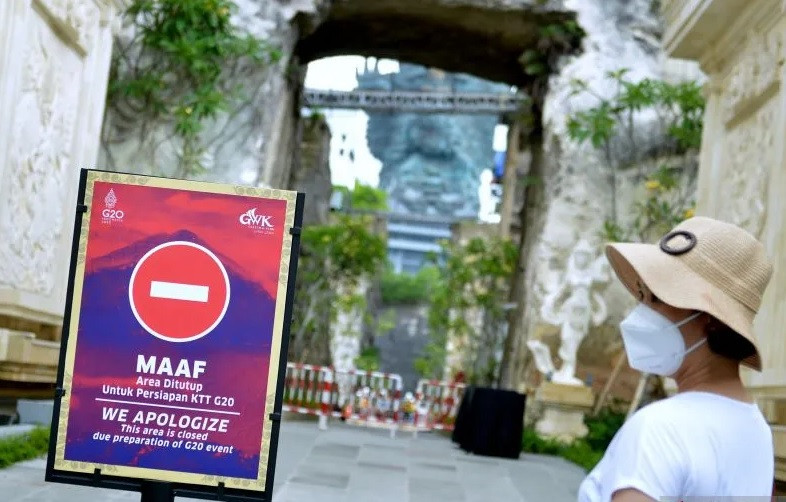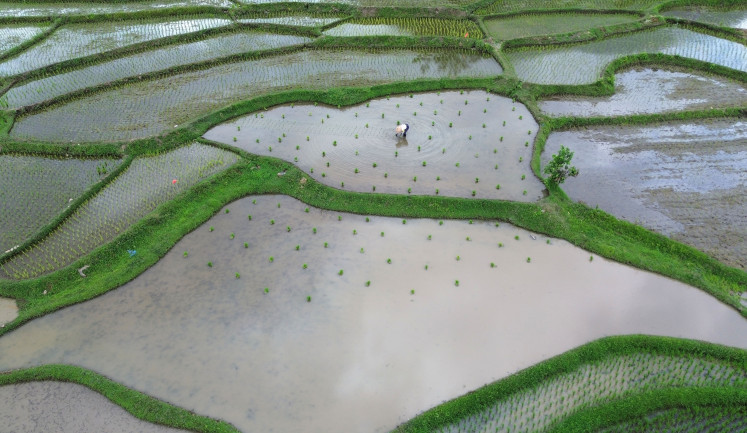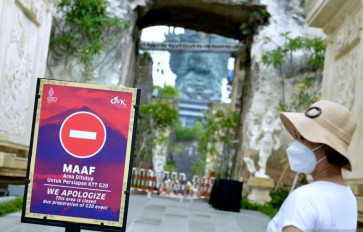Popular Reads
Top Results
Can't find what you're looking for?
View all search resultsPopular Reads
Top Results
Can't find what you're looking for?
View all search resultsG20: Restoring cooperation amid global disconcert
Amid the myriad global pressures facing the world as the G20 Bali Summit gets underway, the forum presents an opportune occasion for countries to draw closer together in addressing their many challenges.
Change text size
Gift Premium Articles
to Anyone

Indonesia’s hosting the Group of 20 Summit offers a rare opportunity to showcase the country’s most recent accomplishments on the one hand, and a new momentum to catch up with the rest of the world on the other.
The ministers in the finance and Sherpa tracks, working groups and 10 engagement groups, including Think20 (T20), have reached out to diverse policymaking communities and even segments of the public. Government officials, policy researchers, business leaders and professionals have supplied the G20 process with policy ideas and action plans. We are earnestly hopeful of pleasant surprises that the G20 Summit may present to the world this week in Bali.
Russia’s invasion of Ukraine on Feb. 24, 2022 struck the world thunderously. Doubt was immediately cast on attendance at the G20 Summit. The Atlantic Alliance hastened to forge anew its unity, which, unfortunately by default, exacerbated conflicts with at least two key members of the G20. The war and the accompanying economic sanctions against Russia and retaliatory sanctions against the West afflicted the world economy with an added blow to a disrupted global supply chain.
Energy and food prices soared at a time when the world had been forewarned of a returning cycle of inflation. Oil prices rose 66 percent in 2021 and 41 percent in 2022, and are expected to fall only slightly in 2023. The G20 preparation is overshadowed by the war throughout the year.
G20 Indonesia’s umbrella theme of “Recovering Together Recover Stronger” calls for expansive fiscal and monetary policies in the short run to stimulate demand and an open trade and investment policy environment to stimulate innovation-driven supply expansion and diversification. However, government-to-GDP ratios have risen by double digits or close to that between 2019 and 2020 alone, leaving very little space for active fiscal policy.
A rising inflation rate forced the United States Federal Reserve to raise its interest rate and the rest of the world was forced to follow suit. Currencies around the globe fell against the US dollar. Debt service payments rose for many governments and corporate borrowers. World growth was projected to weaken from 6.0 percent in 2021 to 3.2 percent in 2022, and then to 2.7 percent in 2023.
The policy environment is also unfavorable to trade growth, despite the fruitful conclusion of the 12th WTO Ministerial Conference in June. Sanctions and retaliatory sanctions have harmed trade. US-China trade has been repeatedly burdened with tariff increases. Mobility restrictions during the COVID-19 years have severely hampered trade.



















